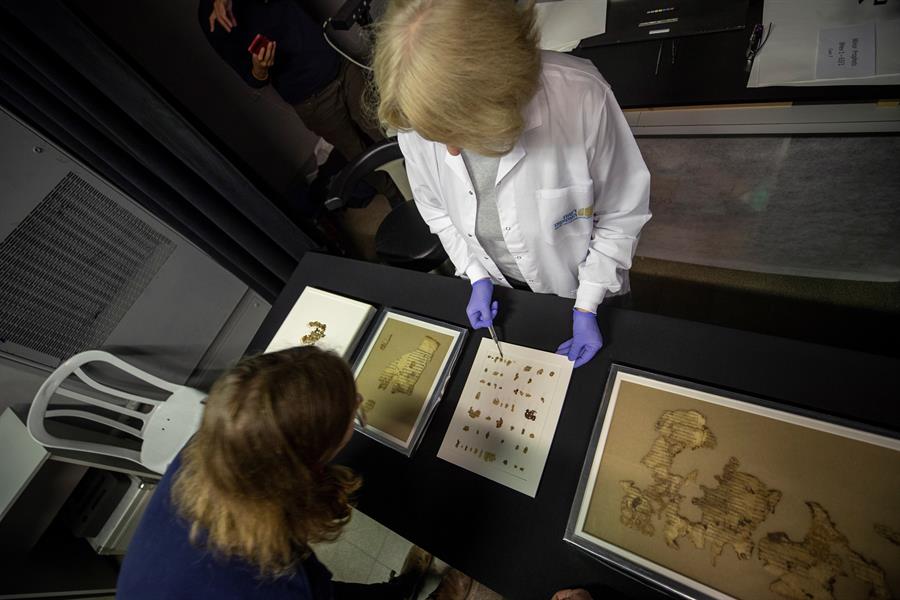Israel on Tuesday unveiled fragments of a 2,000-year-old biblical scroll discovered in the Judean Desert in southern Israel, calling the find one of the most important since the Dead Sea Scrolls.
“For the first time in about 60 years, archaeological excavations have uncovered fragments of a biblical scroll, ” the Israel Antiquities Authority (AAI) said in a statement.
The fragments, written in Greek, have allowed, according to the researchers, to reconstruct passages from the books of Zechariah and Nahum, which are part of the book of the twelve minor prophets of the Bible.
They were found during excavations in a cave on a cliff in the Nahal Hever nature reserve.
For the operation, which spread to the part of the Judean desert located in the West Bank, a territory occupied by Israel since 1967, the AAI provided the archaeologists with drones and mountain equipment.
Earlier fragments were discovered by Bedouins in the 1950s and 1960s in this “cave of horrors,” named for the many skeletons found there, said AAI’s Oren Ableman.
In these new fragments, “we found a completely unexpected textual change, which we have not yet fully explained,” explains Ableman to AFP.
In one passage “instead of the word ‘portals’ found in the other versions, the term ‘streets’ appears”.
Archaeologists are trying to discover the significance of this variation, he added.
In addition to the parchment fragments, objects dating back to the Bar Kokhba Jewish revolt against the Romans (132-136 AD), as well as a 6,000-year-old cloth-wrapped mummified child skeleton and a 10,500-year-old basket were unearthed. , probably the oldest in the world, estimates the AAI.
Save heritage pieces
Since the discovery of the Dead Sea Scrolls more than 70 years ago in the caves of Qumran, the caves of the Judean desert have become the target of antiquity looters.
These 900 manuscripts are considered one of the most important archaeological discoveries of all time because they include religious texts in Hebrew, Aramaic, and Greek, as well as the oldest known version of the Old Testament.
This new discovery “could delve into the history of Greek translation of the Bible,” according to Yosef Garfinkel, director of the archaeological institute at the Hebrew University of Jerusalem.
For Israel Hasson, director of the AAI, which exhibits these objects in its laboratory located in the Israel Museum in Jerusalem, the initiative launched in 2017 aims to “save these rare and important heritage pieces from the clutches of thieves.” .
Israeli archaeologists believe that the caves served as a refuge for Jews at the time of the destruction of the Second Temple in Jerusalem by the Romans in AD 70 and during the Bar Kokhba revolt some 65 years later.
According to Avi Cohen, director of the Jerusalem and Heritage Ministry, which funded the excavation, the scroll testifies to the Jewish history of the area and the “inseparable link between Jewish cultural activities and our place on this land.”
Archaeological discoveries are the subject of disputes between Palestinians and Israelis, who are sometimes accused of wanting to justify territorial claims in the West Bank.
Contacted by AFP, the Palestinian antiquities authorities did not want to immediately comment on these discoveries in the West Bank.

